TIME asked some of the authors and filmmakers behind our favorite horror stories what scares them — if not their own material. Here’s what they had to say.
Stephen King

“The single scariest moment I have ever had in entertainment came during Diabolique [the 1955 film directed by Henri-Georges Clouzot]. It is the moment when the corpse in the bathtub opens its eyes and shows nothing but bulging whites.”
– As perhaps the world’s most revered horror writer in modern literature, author Stephen King has produced nearly 50 novels over a lengthy career.
R.L. Stine
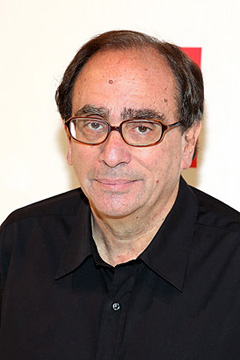
“Nothing scares me. I read horror novels and go to horror movies all the time. And when they come to the scary parts, I always burst out laughing. Is that sick? In The Shining, Jack Nicholson goes berserk, menacing his terrified family with an ax at the Overlook Hotel while his weird son repeats, ‘Redrum, redrum.’ And I laugh. In Marathon Man, Evil Laurence Olivier leans over Dustin Hoffman with his whistling drill and whispers, ‘Is it safe? Is it safe?’ And I laugh.
Vampires? A hoot. Zombies? Hysterical. “I never feel that tingle of fear. I never have the urge to open my mouth in a scream of terror. My teeth don’t chatter. I don’t shudder or feel a chill run down my body. I think horror is funny. I have a friend who went to see Jaws at the movies. When the shark popped up, she was so frightened, she ducked — and broke her nose on the seat in front of her. Now, that’s a good horror-movie reaction. Me? I just laugh.”
— Children’s horror author R.L. Stine has written hundreds of books, including his famous Fear Street and Goosebumps series.
Eli Roth
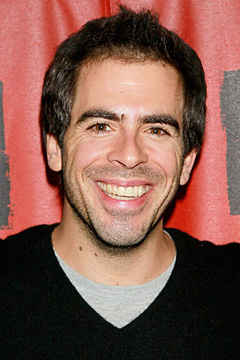
“Fanaticism, in any form, terrifies me. Fanatical devotion to a cause — religious, political, social, even sports teams, often becomes an excuse to let our most violent sides out. When people see others around them that feel the same, they believe in their cause so strongly that suddenly the regular rules of society and behavior stop applying to them, and their actions feel justified because everyone around them feels the same way.
“Violence against others now becomes acceptable, and the darkest, most primal side of our human nature comes out. I remember as a kid going to Yankee Stadium absolutely terrified to wear a Red Sox uniform, yet when I went to Red Sox games we taunted anyone in a Yankees jersey to teach them a lesson not to wear a Yankees jersey on our home turf. Had I met these same people in an office building, I would have been extremely polite, even offended, if they thought of me as a violent person, which by all means I am not. But with the right article of clothing on both of us in the right location we revert to some animal state and justify lashing out at others.
“I see it happening now in America with religion and political parties more than anything. If you’re not with us, you’re against us, and if you’re against us then you’re against all that’s good and decent and must be destroyed. Everyone’s yelling and yelling until the other loses their voice, and it feels like there’s no end in sight. This terrifies me. That and giant frogs.”
— Known for his signature low-budget thrillers, filmmaker Eli Roth has made movie audiences shriek with films like Cabin Fever and the Hostel franchise — hair-raising odes to the blood-by-the-bucket ’70s and ’80s slasher flicks.
Joe Hill
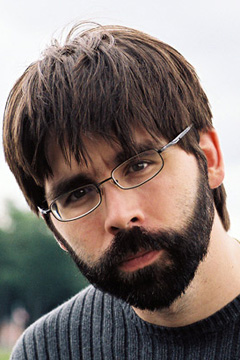
“AutoCorrect. AutoCorrect is the first phase in the war between the machines and mankind. There’s something so very, very wrong about sending a text to your mother that you thought said ‘nothing but cumulus clouds today’ but which AutoCorrect fixes to read ‘nothing but cunnilingus loud today.’ I assume at some point in the near future, the President will send a text to Hu Jintao reading ‘Looking forward to our talks in Beijing soon’ and his iPhone will change the message to read ‘Looking forward to our tanks in Beijing soon.’ This will be followed by 30 minutes of frantic text messages, all over the planet, reading ‘omfg the world is ending amf!! @ least I dont have 2 go 2 work 2day lol!!’ Millions will die, but will still be unable to get out of their cellular-phone contracts. This is the stuff that keeps me up at 3 a.m.”
— Writer Joe Hill’s first collection of short stories, 20th Century Ghosts, published in 2005, won the coveted Bram Stoker Award and showcased Hill as a major new talent. His first novel, Heart-Shaped Box, went on to become a New York Times best seller in 2007, followed by 2009’s equally chilling Horns. Though Hill has earned his literary credentials on his own, you could say his penchant for horror is in his blood. His father is author Stephen King.
Elvira
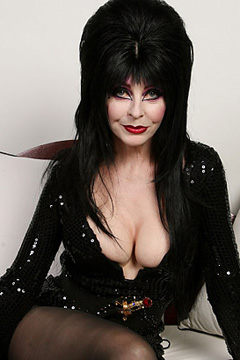
“Nothing.”
— Fans might not recognize Cassandra Peterson’s name, but they know her alter ego. As Elvira, the goth glam mistress of the dark, Peterson has played hostess to horror since the early 1980s — and she’s still at it.
Amy Bruni
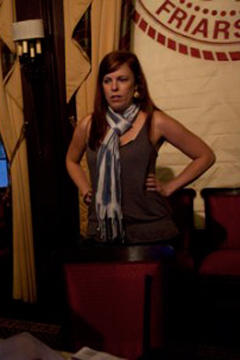
“I’m not scared of a whole lot, other than normal life stuff—relationships and what not. Those are scarier than ghosts. I’m more afraid of people than anything.
Once we were investigating an old prison. It was a huge complex of empty buildings and we had a cleared a few, but someplace that big always has a few squatters and people hanging around. I was in a tunnel by myself and I kind of got lost in there. I found a manhole cover and lifted it up so I could get out. When I got through the opening, I ended up in basically a boiler room that was a squatter’s house. There was a man there and I looked at him and he looked at me and we had this mutual understanding I was going to leave. It was so terrifying. People are so much more terrifying than ghosts. Things like that are why we tell people not to go investigating by themselves or without permission.”
— Amy Bruni is the star of Syfy’s Ghost Hunters, a series of paranormal investigations around the world.
Colson Whitehead
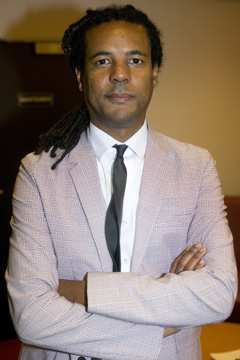
“Some people have anxiety dreams about performing in front of an audience and their naked or they forgot their materials for a big presentation, I have zombie dreams.
There are different theories about why people are afraid of zombies. For me, being a misanthropic and paranoid sort, zombies tap into a big fear of mine, which is that in any instant, everyone you know could become the kind of monster you sadly, secretly always suspected they were. A switch goes off, suddenly the whole world is changed and all of your private fears have been revealed.”
— Author Colson Whitehead’s novel Zone One chronicled the plight of a group of zombie exterminators during the invasion of the undead in New York City.
Kelly Link
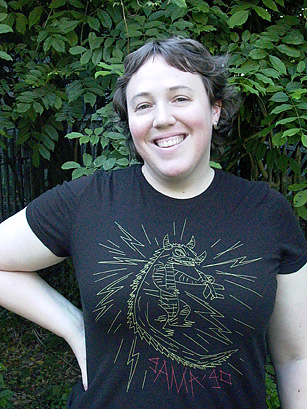
“I’ve always loved ghost stories, writers like M.R. James, L.P. Hartley, Joan Aiken, Stephen King, Joe Hill. But the scariest story I’ve ever heard was a true ghost story.
“There were eight or nine of us at a restaurant in Raleigh, North Carolina, and we were telling ghost stories. The friend of a friend said, ‘When I was a girl living in Texas, I had a recurring dream. In this dream, I was walking down the street of my hometown, and a man would walk toward me. Sometimes he was older and sometimes he was younger. He didn’t always have the same face, but I always knew it was the same man. He would get closer and closer, and I would know that something bad was going to happen, but I would wake up each time before he reached me. I would be terrified.
One night, in my dream, we finally got face to face and I spoke to him. I said, “What is your name?” He said, “My name is Sammy.” And then I woke up, and I was so afraid that I couldn’t go back to sleep. I went to my sister’s room and said, “Can I get in bed with you? I’ve just had a really bad dream.” My sister said, “Was it Sammy?” I said, “What did you say? How do you know Sammy?” And my sister said, “I don’t. But you just brought him in the room with you.” I turned on the lights and I saw that my sister was asleep.'”
— Writer Kelly Link first made hair stand on end with her debut short-story collection Stranger Things Happen in 2001, followed by Magic for Beginners in 2005 and Pretty Monsters in 2008. Link and her husband Gavin Grant collaborated on an anthology of the weird, Steampunk!, which was released in October 2011.
Guillermo del Toro
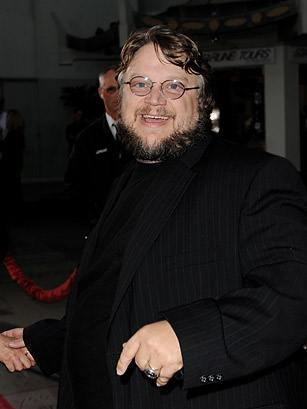
“The moment Lon Chaney is revealed as the Phantom of the Opera was one of those seminal moments in my mind. It scared me not because of how scary it looked, but because of how remote and majestic Lon Cheney played it. That gesture, so unique and so commanding and so full of power and rage and despair. It was truly a powerful moment.”
— Filmmaker Guillermo del Toro made his mark in horror cinema with the elegantly frightening The Devil’s Backbone in 2001 and again with the highly acclaimed Pan’s Labyrinth in 2006. He has since added the title of author to his résumé, releasing parts 1 and 2 of a vampire trilogy, The Strain and The Fall, along with co-author Chuck Hogan in 2009 and 2010, respectively.
Frank Darabont
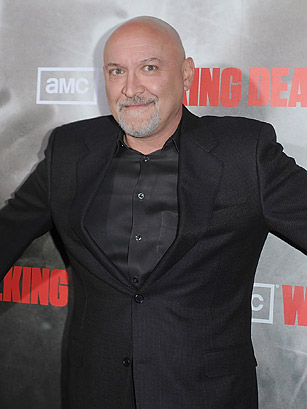
“Pretty much everything in The Exorcist frightens me. It’s hard to get frightened as an adult, especially if you’re a geek and grew up with this stuff. It’s hard to get that frisson of fear. I think the first time The Exorcist hit DVD, there was a sequence cut together from the outtakes of Regan walking down the stairs bent over backwards like a spider. When I saw that — that was on a supplement of that first DVD — that really creeped me out. I got that feeling right back up my spine that went into my brain. I thought, ‘Oh my god, this is the most horrifying thing I’ve ever seen.’ It was great.
Then they rereleased another version of it on DVD and they put that scene back into the movie and did some digital work on it, and that took all the power out of it. The version that I saw on the first DVD release, as a supplement, that was the one that really kicked my ass, that was the one that was really frightening, I think because the first version was rougher. It wasn’t digitally enhanced. Man, did that creep me out. When that happens, I’m actually very grateful, because it’s the moment when you go, ‘Oh, they got me,’ and you get that sense of unease, that disquiet, and suddenly you’re locking your doors. It’s very cool. I love when that happens.”
— Three-time Academy Award nominee Frank Darabont is probably best known for his work on film adaptations of Stephen King’s work (The Shawshank Redemption, The Green Mile and The Mist) but most recently, he became the catalyst behind the zombie apocalypse, serving as a director and producer on AMC’s widely praised adaptation of zombie comic The Walking Dead.
Max Brooks
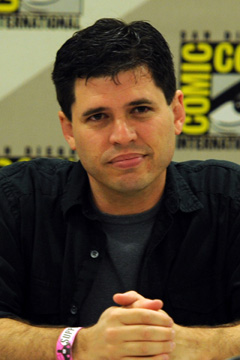
“I think what terrifies me most is the follower. That’s the monster of society, the person who doesn’t think, they just do what they’re told. To me, that’s evil incarnate. Hitler was not as scary as history makes him out to be. It was the millions of followers who were truly frightening. They went along with it without doubt, without cause, without question. Followers come in all distinctions: There are gutless followers, mindless followers, but they’re still following.”
— Unofficial zombie defense provost Max Brooks is the author of The Zombie Survival Guide and World War Z: An Oral History of the Zombie War, which was adapted into a film starring Brad Pitt.
More Must-Reads from TIME
- Donald Trump Is TIME's 2024 Person of the Year
- Why We Chose Trump as Person of the Year
- Is Intermittent Fasting Good or Bad for You?
- The 100 Must-Read Books of 2024
- The 20 Best Christmas TV Episodes
- Column: If Optimism Feels Ridiculous Now, Try Hope
- The Future of Climate Action Is Trade Policy
- Merle Bombardieri Is Helping People Make the Baby Decision
Contact us at letters@time.com